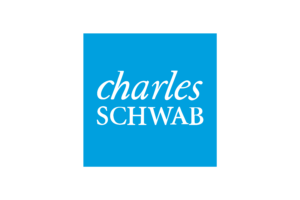
Choosing between a pension plan vs 401k is one of the biggest financial decisions many employees face. While both can help you save for retirement, their mechanics, risks, and long-term payoffs are fundamentally different.
This guide breaks down the pension and 401k difference, explains the trade-offs in control and guarantees, and offers a framework for deciding pension vs 401k which is better for your goals.
Pension Basics: The Classic Defined Benefit
How Traditional Pension Plans Work
A pension—technically a defined benefit plan—promises a fixed monthly payment for life once you reach a preset retirement age. The formula usually factors in final salary and years of service. You can often choose a lump sum instead of installments, but the monthly check remains most popular because it mimics a personal pension from days past.
Funding and Guarantees
Employers contribute 100 % of the money and shoulder the investment risk. Even if the fund underperforms, you still get the stated benefit. Should the sponsoring company fail, the Pension Benefit Guaranty Corporation (PBGC) insures part of the benefit, though caps apply.
Pros and Cons
Pros
- Lifetime income you can’t outlive
- No need to pick investments or monitor markets
- Spousal or survivor options for loved ones
Cons
- Limited or no control if you leave early
- Benefit frozen if the plan closes to new accruals
- Inflation can erode fixed payouts unless the plan offers cost-of-living adjustments
401(k) Basics: The Modern Defined Contribution Plan
How 401 k Plans Operate
A 401(k) is a defined contribution plan funded by pre-tax payroll deductions and, often, an employer match. The money flows into your account, grows tax deferred, and is invested in mutual funds, target-date funds, or company stock. What you get at retirement depends on your contributions, market performance, and fees.
Control and Flexibility
You choose how much to save (up to annual IRS caps) and where to invest. When you change jobs, you can keep the account, roll it to a new plan, or move it into an individual retirement account (IRA).
Pros and Cons
Pros
- High level of control over contributions and investments
- Portable—your account follows you between employers
- Potential employer match is free money
Cons
- You bear market risk and sequence-of-returns risk
- Fees can chip away at gains
- Early withdrawals before age 59 ½ trigger tax and penalties unless exceptions apply
What Is a Pension vs 401k? Key Structural Differences
|
Feature |
Pension Plan |
401(k) Plan |
|
Plan Type |
Defined benefit |
Defined contribution |
|
Funding Source |
Employer |
Employee + employer match |
|
Investment Control |
Employer |
Employee |
|
Guarantee |
Monthly benefit backed by plan & PBGC |
No guarantee: balance fluctuates |
|
Portability |
Limited |
High |
|
Risk Owner |
Employer |
Employee |
|
Taxation |
Payments are taxed as ordinary income |
Withdrawals are taxed; Roth option may be tax-free |
This table highlights the core pensions and 401 differences many savers overlook: who funds the plan, who manages the investments, and who absorbs the ups and downs.
Taxes: How and When You Pay
- Pensions: Monthly payments (or a lump sum) are subject to income taxes in the year received.
- 401(k)s: Contributions are pre-tax (traditional) or after-tax (Roth). Traditional withdrawals are taxable; Roth withdrawals after age 59 ½ and the five-year rule are tax-free.
Either way, Uncle Sam eventually gets a share—timing and rate depend on the vehicle you choose.

Control vs Certainty: Which Matters More?
If You Crave Predictability
A pension’s fixed check offers peace of mind, especially if Social Security covers only part of your essential expenses. Think of it as an income floor.
If You Value Flexibility
A 401(k) lets you adjust contributions, update your asset mix, and even pause savings during lean times. Over decades, disciplined investors can outpace the internal returns of many traditional pension plans—but that upside comes with market swings.
Private Sector Realities: Employer Offers Matter
In the private sector, pure pensions are fading fast. Most companies now favor 401(k)s because funding obligations are clear and liability rests on employees. If your employer offers both, you’re among a shrinking minority with a genuine choice.
How to Decide: Pension or 401k?
Step 1: Calculate Guaranteed Needs
List essential costs—mortgage, utilities, insurance. Pension + Social Security should ideally meet that baseline.
Step 2: Assess Risk Comfort
If market drops keep you awake, the certainty of a pension may be worth the lost upside of a 401(k).
Step 3: Factor Longevity
Healthy family history? A lifetime pension check can deliver more total dollars than you could safely withdraw from a 401(k).
Step 4: Analyze Portability Needs
If your career path is mobile, an easily transferable 401(k) or IRA rollover could prove invaluable.
Bridging the Gap: Blending Both Options
Many employees with access to both vehicles split the difference:
- Elect the pension’s base benefit (especially if heavily subsidized).
- Maximize contributions to the 401(k) for added retirement savings and potential growth.
- Upon leaving, roll any vested 401(k) balance into an IRA to broaden investment choices and lower fees.
This hybrid model creates a floor of predictable income plus a pool of growth assets you control.
Frequently Asked Questions
Can I cash out a pension early?
Some plans provide a deferred vested lump sum, but you’ll often forfeit future accruals and may face hefty tax withholding.
What happens if the employer drops the pension?
Accrued benefits are frozen, not erased. The PBGC backs a portion, though high-income retirees could see cuts.
Is a 401(k) enough to retire on?
Yes—if you contribute consistently, invest wisely, and manage withdrawals. Many workers also build IRAs or taxable brokerage accounts to supplement.
Bottom Line: Pension vs 401k—Which Is Better?
There is no universal winner in the pension plan vs 401k debate. The decision hinges on your job stability, risk comfort, and lifetime income goals:
- Choose a pension plan if guaranteed monthly income is your priority and you expect to stay with one employer.
- Choose—or emphasize—the 401(k) if you value control, portability, and market-linked growth.
- When possible, embrace both to hedge against longevity risk and market volatility.
Understanding what is a pension vs 401k empowers you to craft a robust strategy rather than relying on guesswork. Still unsure? A fee-only planner can run personalized projections to reveal how each choice affects your retirement trajectory. Ultimately, informed decisions today create the freedom to live the future you envision.
Choosing between a pension and 401(k)? Get personalized financial planning guidance.
EIA Income Advisors, Inc. is a registered investment adviser and only conducts business in jurisdictions where it is properly registered, or is excluded or exempted from registration requirements. Registration is not an endorsement of the firm by securities regulators and does not mean the adviser has achieved a specific level of skill or ability. The firm is not engaged in the practice of law or accounting.
We reserve the right to edit blog entries and delete comments that contain offensive or inappropriate language. Comments that potentially violate securities laws and regulations will also be deleted.
The information presented is believed to be factual and up-to-date, but we do not guarantee its accuracy and it should not be regarded as a complete analysis of any topics discussed. All expressions of opinion reflect the judgment of the authors on the date of the post and are subject to change. A professional adviser should be consulted before making any investment decisions. Content should not be viewed as personalized investment advice or as an offer to buy or sell any of the securities discussed.
All investments and strategies have the potential for profit or loss. Different types of investments involve higher and lower levels of risk. There is no guarantee that a specific investment or strategy will be suitable or profitable for an investor’s portfolio. There are no assurances that an investor’s portfolio will match or exceed a specific benchmark.
Historical performance returns for investment indexes and/or categories usually do not deduct transaction and/or custodial charges, or advisory fees, which would decrease historical performance results.
Hyperlinks on this blog are provided as a convenience. We cannot be held responsible for information, services, or products found on websites linked to our posts.
Annuity and life insurance guarantees are subject to the claims-paying ability of the issuing insurance company. If you withdraw money from or surrender your contract within a certain time after investing, the insurance company may assess a surrender charge. Withdrawals may be subject to tax penalties and income taxes. Persons selling annuities and other insurance products receive compensation for these transactions. These commissions are separate and distinct from fees charged for advisory services. Insurance products also contain additional fees and expenses.
Social Security rules and regulations are subject to change at any time. Always consult with your local Social Security office before acting upon any information provided herein.
Tax and legal information contained in this publication is general in nature and should not be relied upon as tax or legal advice. Always consult an attorney or tax professional regarding your specific legal or tax situation. Tax and pension rules are subject to change at any time.





